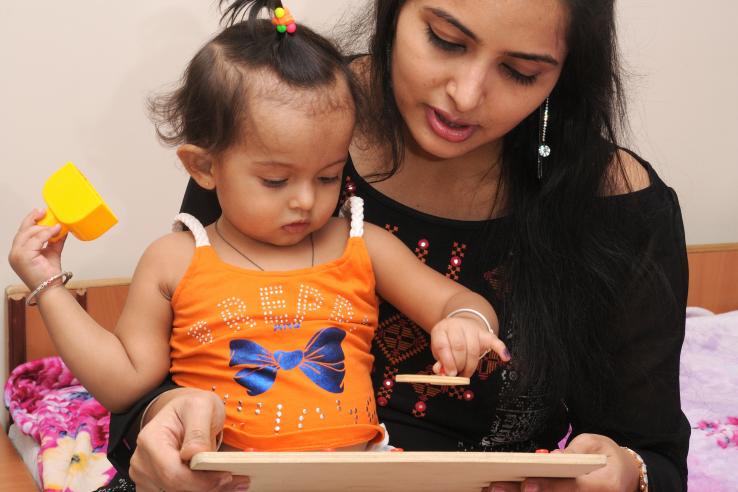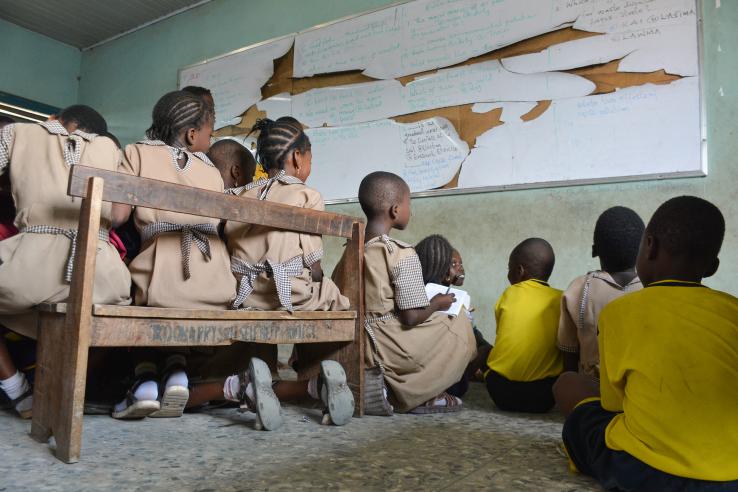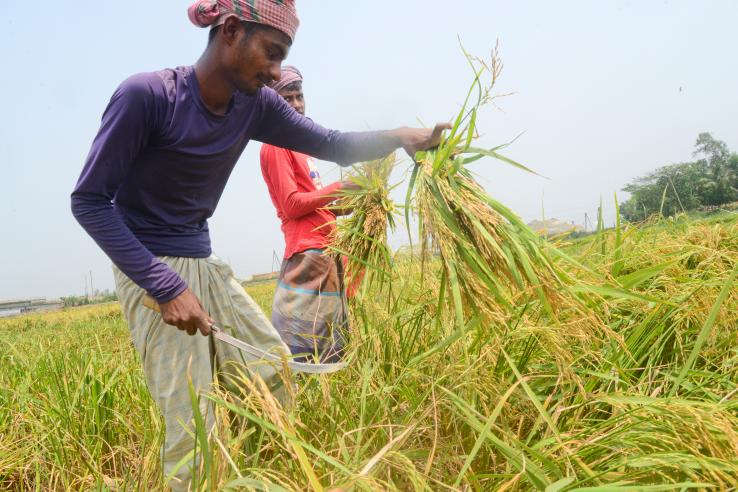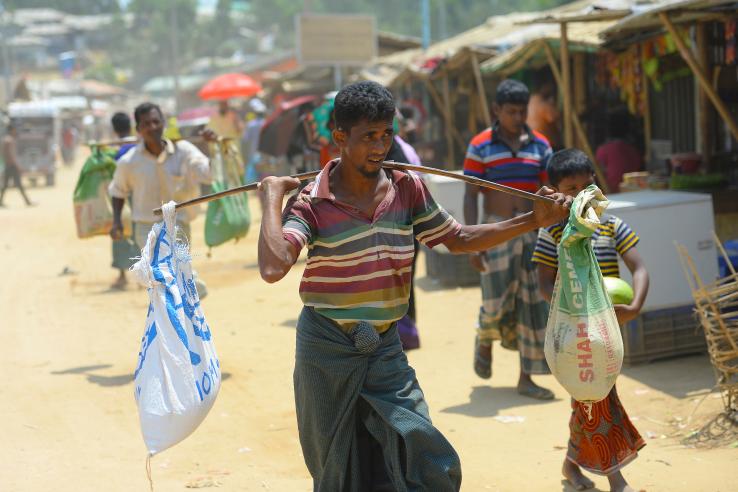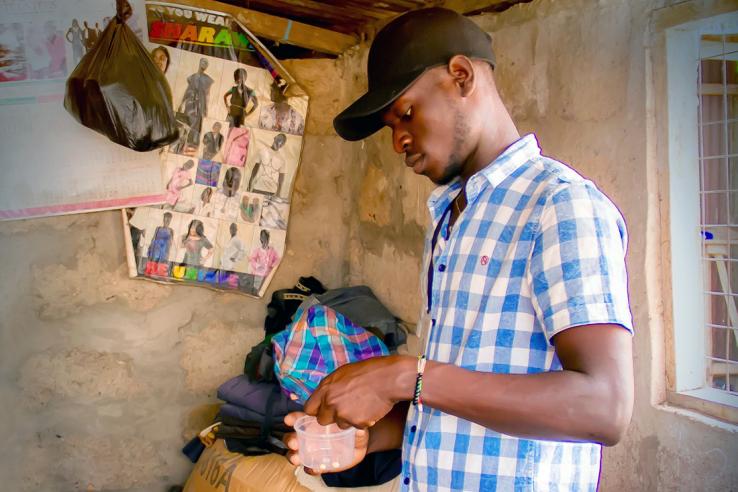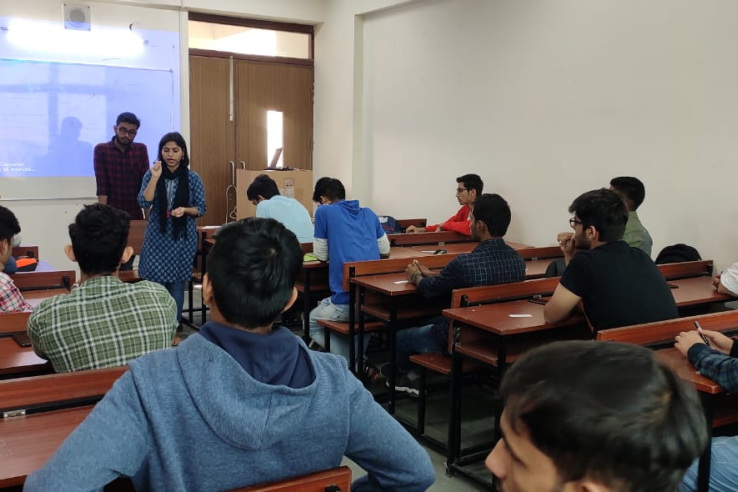Displaying 61 - 75 of 1291
Evaluation
In partnership with the Association of Volunteers in International Service, researchers evaluated the impact of the Women’s Income Generating Support (WINGS) program, an initiative which provided low-income Ugandan individuals, mainly women, with financial grants, business skills training, and ongoing supervision on individuals’ economic outcomes. The WINGS program improved individuals’ earnings and access to nonfarm business opportunities in postwar Uganda.
Evaluation
Researchers evaluated the impact of an early childhood psychosocial stimulation program on child development outcomes in urban Odisha, India. They found that a home-visiting stimulation program led to greater development outcomes, particularly for boys, stunted children, and children with more educated mothers.
Evaluation
Researchers are partnering with Bridge International Academies to evaluate the impacts of interleaved problem sets, which allow for rapid performance feedback, on students’ learning outcomes in Nigeria.
Evaluation
Researchers are partnering with Bridge International Academies to evaluate the impact of an SMS-based information provision program on students’ learning outcomes in Kenya.
Evaluation
Researchers conducted two randomized evaluations in Bangladesh to study the impact of a new irrigation method and different pricing schemes on water use and conservation. The new irrigation method reduced water consumption and costs for farmers who were already paying for water by the hour, or by volume.
Evaluation
Researchers conducted a randomized evaluation to test the impact of employment on refugee psychosocial well-being in Bangladesh. The study found that employment generated significant psychosocial value beyond that from cash transfers alone.
Evaluation
Researchers conducted a randomized evaluation to measure the impact of an information program on parental school choice and long-term student achievement. They found that the intervention shifted household school choices of those who were not enrolled before the intervention toward establishments with higher average test scores, higher value add, higher prices, and schools that tend to be further from their homes.
Evaluation
Researchers randomly provided more or less cash to garment-making firm owners in Ghana before a bargaining game to evaluate the impact of endowment on the negotiated sale price of a good. Owners of garment-making microenterprises with lower household liquidity agreed to lower sale prices during the bargaining process, suggesting that the prior wealth of microentrepreneurs who participate in bargaining may impact how much they are able to earn.
Evaluation
The researcher evaluated the impact of a sexual harassment training on the incidence of sexual harassment, opposite sex relationships, and attitudes and beliefs towards sexual harassment in India. Overall, the training reduced extreme forms of sexual harassment in the short run and intermediate forms of harassment in the long run, likely by changing men’s beliefs about others' attitudes to sexual harassment. The training also reduced opposite sex romantic relationships between classmates.
Evaluation
Researchers are conducting a randomized evaluation to test the impact of a package of interventions with the aim of improving the quality of nurseries, enhancing nutrition, and empowering women to address poverty and promote early childhood development in Egypt.
Evaluation
Researchers conducted a randomized evaluation to test the impact of providing subsidies for a soil monitoring technology on the electricity used to pump groundwater to agricultural fields in rural Bangladesh. They found that the technology reduced the amount of electricity used for irrigation, but only when subsidies were directed to the groundwater providers, giving them an incentive to save on energy costs without affecting farmers’ crop yields.
Evaluation
Researchers partnered with local agencies in King County, Washington to evaluate the impact of providing transit subsidies on rates of FTA in court. While the study was disrupted due to Covid-19, the pilot results indicated that transit subsidies had little effect on reducing FTA.
Evaluation
Researchers working with a large apparel maker in Bangladesh are evaluating the impact of phone call reminders sharing information about their employer’s support for workers to use their company's paid sick leave to increase worker retention.
Evaluation
Researchers are evaluating the impact of the “Teaching at the Right Level” program on students’ foundational literacy and mathematics skills.
Evaluation
Researchers conducted a randomized evaluation to test the impact of a financial literacy interactive voice response campaign on loan outcomes. The intervention boosted knowledge and slightly improved loan repayment, but it also raised loan demand, increasing the overall risk of default.
